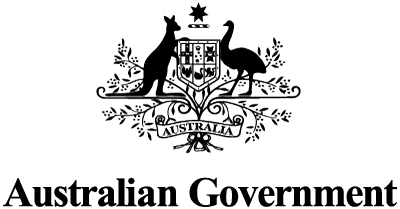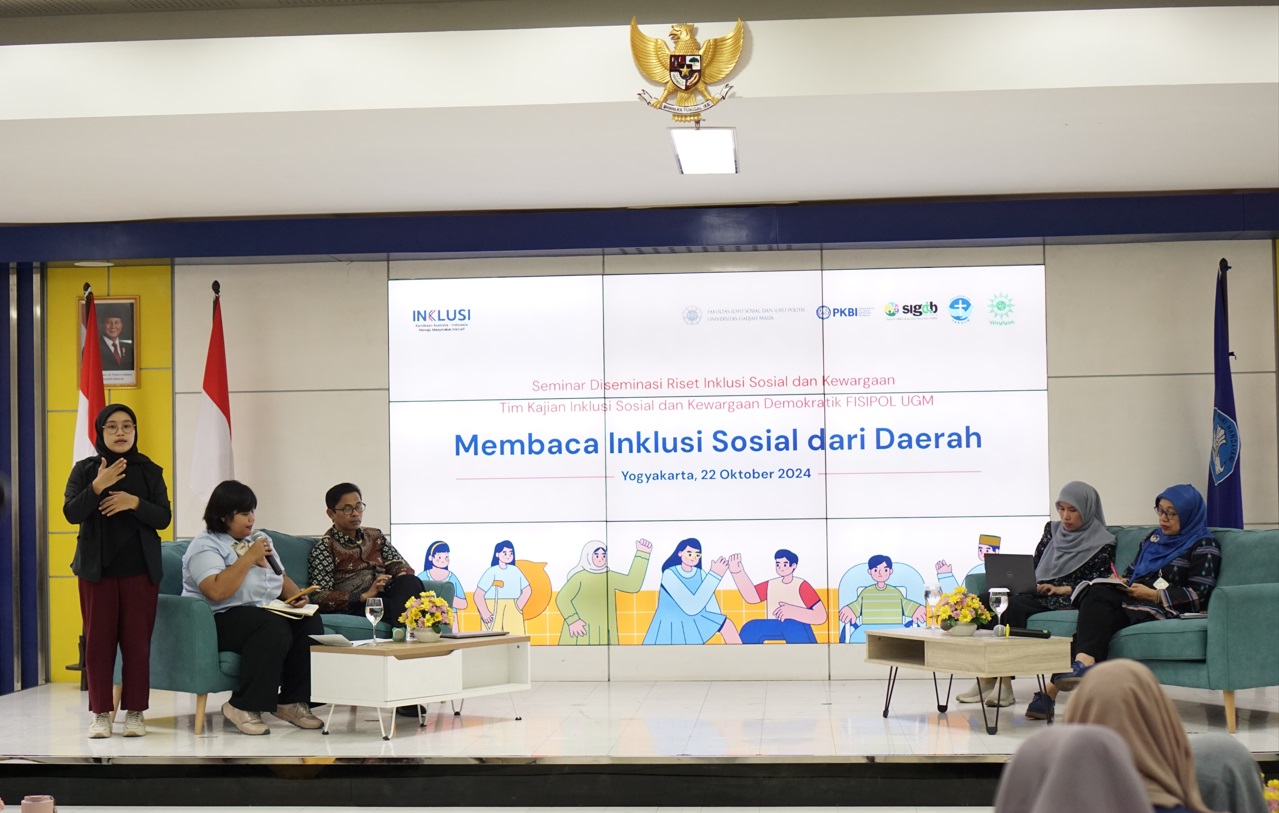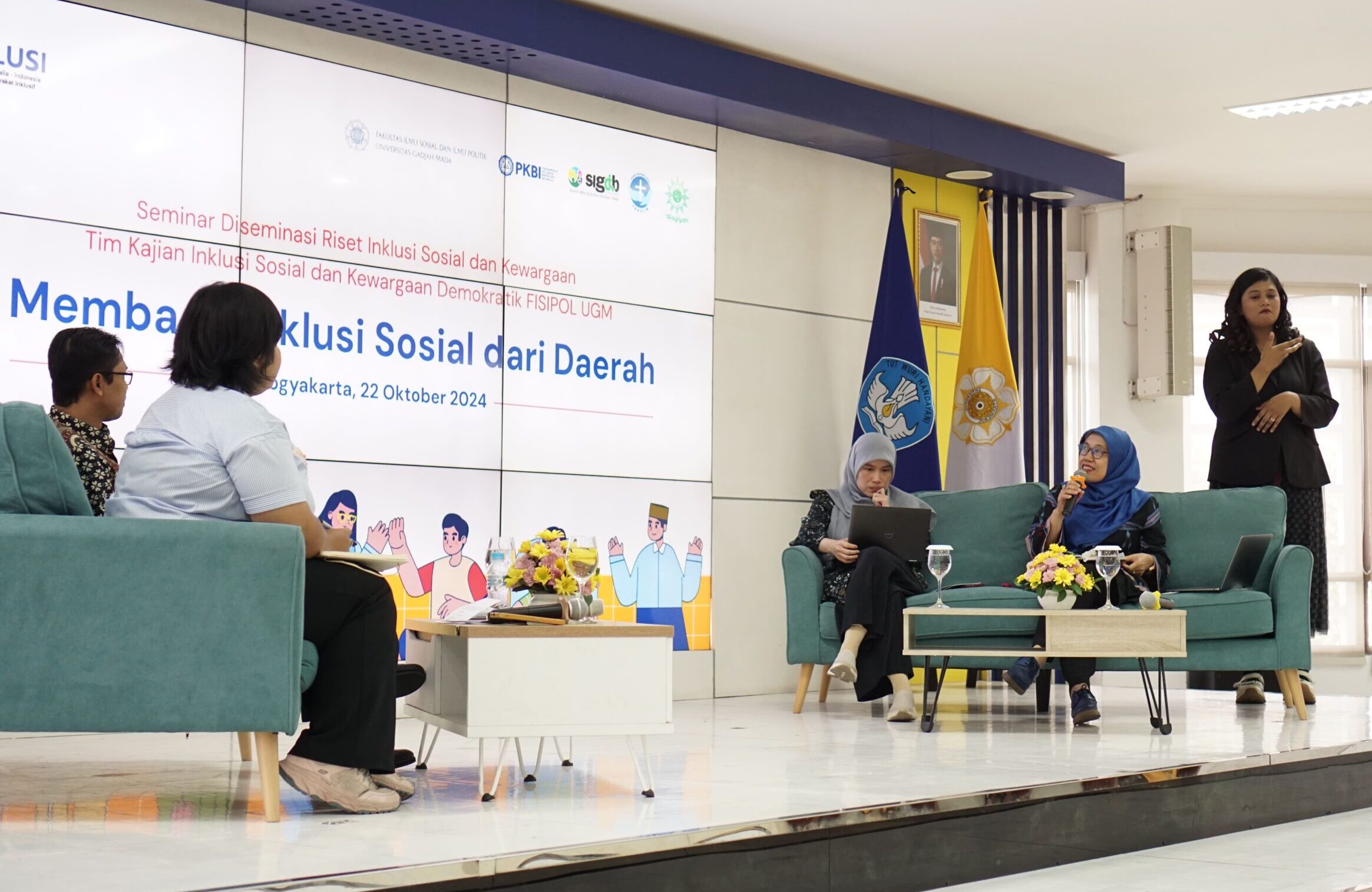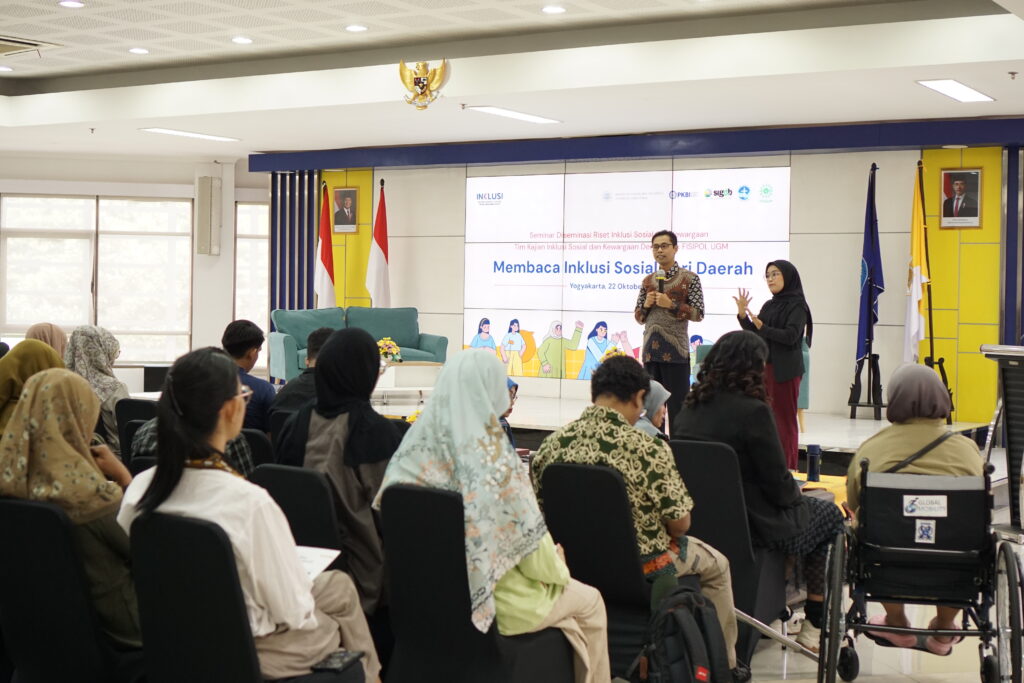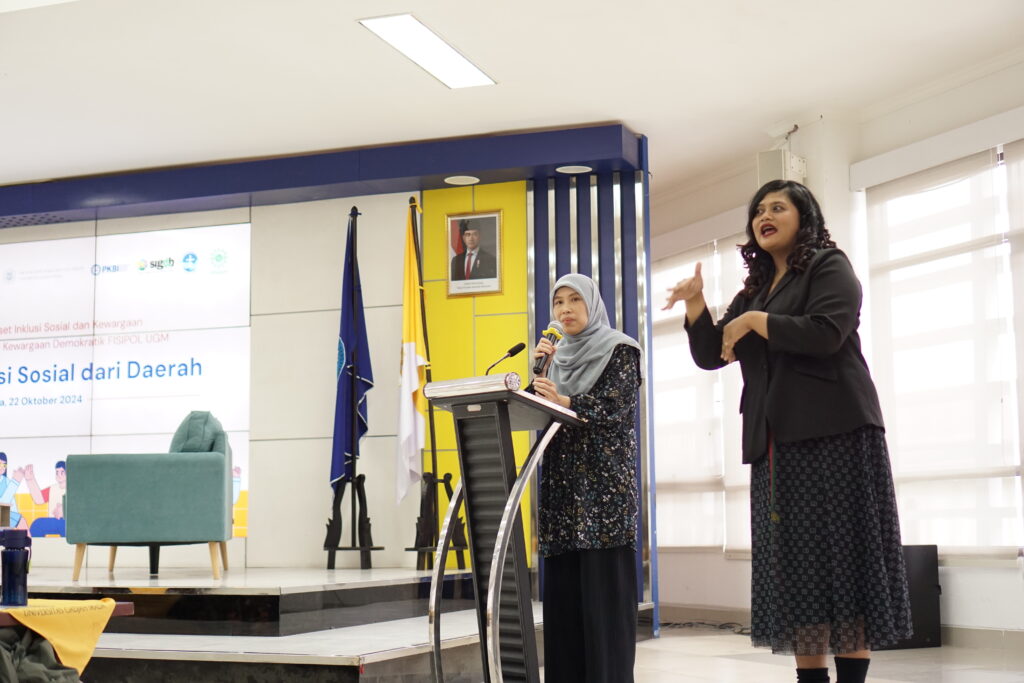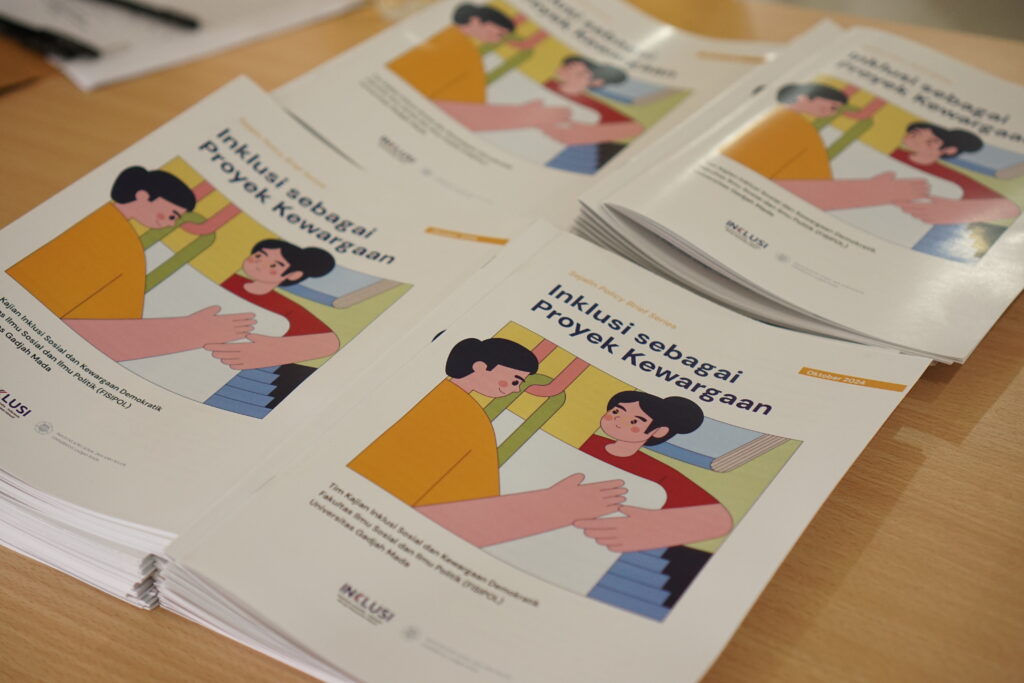The Social Inclusion and Citizenship Research Team (Sejalin) from the Faculty of Social and Political Sciences, Universitas Gadjah Mada (FISIPOL UGM), a research partner of the INKLUSI Program, launched two key research findings during the Dissemination Seminar entitled “Understanding Social Inclusion from Regional Perspectives,” on 22 October 2024 at Auditorium FISIPOL UGM, Yogyakarta.
The seminar was a collaborative effort between FISIPOL UGM and INKLUSI CSO partners, ‘Aisyiyah, the Indonesian Family Planning Association (PKBI) Yogyakarta, Sasana Inklusi dan Gerakan Advokasi Difabel (SIGAB) Indonesia, and YAKKUM Rehabilitation Centre (PR YAKKUM), who supported the implementation of these research studies.
The first research, GEDSI Situational Analysis in Local Areas, was conducted across six regions: Banda Aceh, Bireuen, Makassar, Maros, Bantul, and Yogyakarta. This study identified both the potential and challenges in achieving Gender Equality, Disability, and Social Inclusion (GEDSI) at the local level, offering strategic insights to strengthen social inclusion.
The second research, “The Process of Developing Exclusive Policies in Indonesia Post-Decentralisation” focused on policymaking in Makassar and Yogyakarta. It highlighted opportunities to refine existing policies to better respond to the needs of marginalised groups. The findings serve as a critical foundation for promoting more inclusive and equitable policies.
Dr Wawan Mas’udi, MPA, Dean of FISIPOL UGM and Principal Investigator of the research, underscored the importance of building a robust data foundation.
If similar studies are conducted across other regions in Indonesia, we could develop a comprehensive GEDSI situational map, enabling more precise and in-depth social inclusion policies, Dr Wawan Mas’udi
Based on these research findings, FISIPOL UGM has released two policy briefs. The first policy brief, “Realising Inclusive Policies for All” recommends enhancing the policy-making process through meaningful stakeholder engagement, improving policy implementation through derivative regulations and better disaggregated data, and mainstreaming GEDSI values to foster an inclusive mindset among policymakers.
The second policy brief, “Inclusion as a Civic Project” outlines three key recommendations which are linking redistribution and representation efforts with meaningful recognition to reduce stigma against marginalised groups, framing inclusion as a social responsibility, and adopting an intersectional and multi-sectoral approach in developing and implementing inclusion programs.
The seminar brought together representatives from government, civil society organisations (CSOs), and academia to discuss strategies for mainstreaming social inclusion at the regional level.
Qurrota A’yun, S.Si., MPH, a representative from the Ministry of National Development Planning (Bappenas), emphasised the relevance of such research to national development objectives. “One of the goals of Indonesia’s ‘Golden Development’ is an inclusive society, as mandated by the National Long-Term Development Plan (RPJPN) Law No. 59 of 2024. This research provides critical evidence to understand social exclusion and the challenges that must be addressed,” said Qurrota A’yun.
Through this research dissemination, the initiative aims to strengthen collaboration with stakeholders to advance social inclusion at the local level by providing evidence-based policy recommendations, thereby creating greater opportunities for marginalised groups to participate in and benefit from Indonesia’s development.
Watch the seminar recording at link


